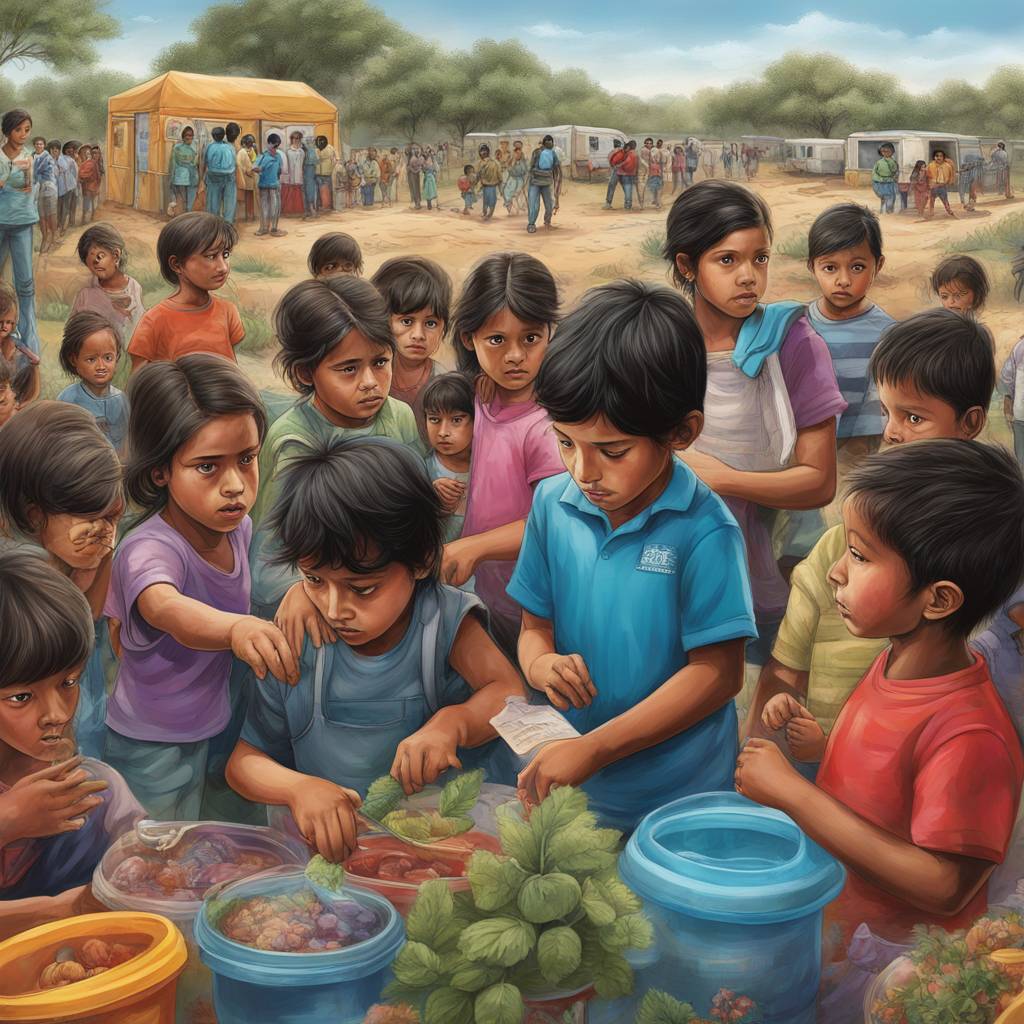Dr. Theresa Cheng describes the scene at Valley of the Moon in San Diego as “apocalyptic,” as she provides volunteer medical care to asylum seekers who have entered the United States by breaching the border wall. Children with various health issues such as lacerations, broken bones, and respiratory problems are found in dire conditions, including exposure to communicable diseases and outdoor elements. Lack of shelter, food, and sanitation infrastructure has raised public health concerns for this vulnerable population, prompting a legal battle over whether the government is obligated to provide for their basic needs as they wait for processing.
The Department of Justice argues that children at these sites are not yet in custody and therefore not entitled to shelter and food services, despite the challenging conditions they are enduring. Asylum seekers, including unaccompanied children, are detained at open-air holding areas without the necessary provisions, unlike at immigration processing facilities. Organizations and volunteers working at these sites have reported concerning issues such as lack of diapers for babies, limited food and water, and unsanitary conditions leading to severe diaper rash. Children and other migrants have been forced to wait outdoors for days, contributing to a myriad of health issues.
Migrant advocacy groups have filed complaints about the conditions at the holding areas, while lawyers representing children in immigration custody have taken legal action under the Flores settlement agreement. This agreement established standards of treatment for immigrant children and mandates that they are released to appropriate sponsors promptly. Plaintiffs argue that children awaiting processing in the open air deserve safe and sanitary housing, similar to those in official custody. Medical issues among children at these sites are challenging to quantify, as volunteers are not always present, leading to a lack of collective data on the ailments treated there.
The difficult living conditions at the open-air holding areas have led to a range of health issues among both children and adults seeking asylum. Medical professionals have treated individuals with serious conditions such as hypothermia, dehydration, and traumatic injuries resulting from their journeys. Migrants who present themselves to border authorities in remote areas often arrive in deteriorated health, including cases of panic attacks, broken bones, and exhaustion. The influx of migrants and fluctuating wait times have strained resources, with concerns about the ability to provide adequate medical attention and support at these makeshift camps.
Recent incidents of children falling off the border wall in their parents’ arms highlight the dangers faced by asylum seekers attempting to cross into the U.S. The increase in traumatic injuries, including deep head gashes, has led to a surge in medical emergencies at the border sites. Aid workers have reported challenges in accessing emergency services, with federal agents sometimes denying requests to call 911 for serious injuries. Volunteers and medical professionals struggle to provide immediate care to those in need, highlighting the ongoing humanitarian crisis at the border and the urgency of addressing the healthcare needs of migrants seeking asylum in the United States.
The tragic death of a 13-year-old boy at the border site due to lack of immediate assistance underscores the severity of the situation faced by asylum seekers waiting for processing. The boy’s death, which occurred despite efforts by medical professionals, sheds light on the shortcomings in the current system and the urgent need for increased resources and support for migrants at the border. As the legal battle over the government’s obligations to provide for the basic needs of asylum seekers continues, the ongoing humanitarian crisis at the border calls for immediate action to ensure the safety and well-being of vulnerable populations seeking refuge in the United States.


